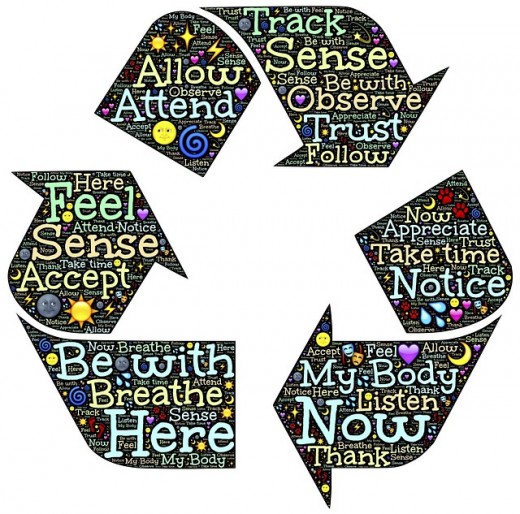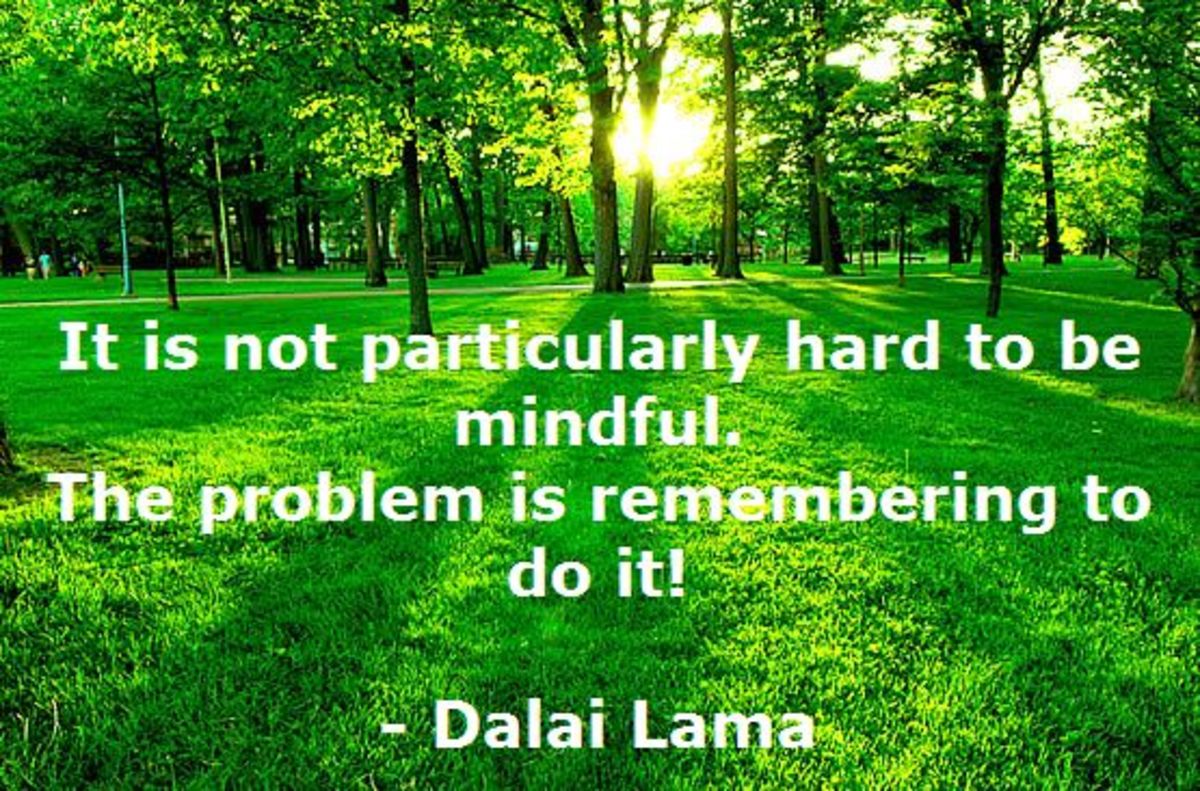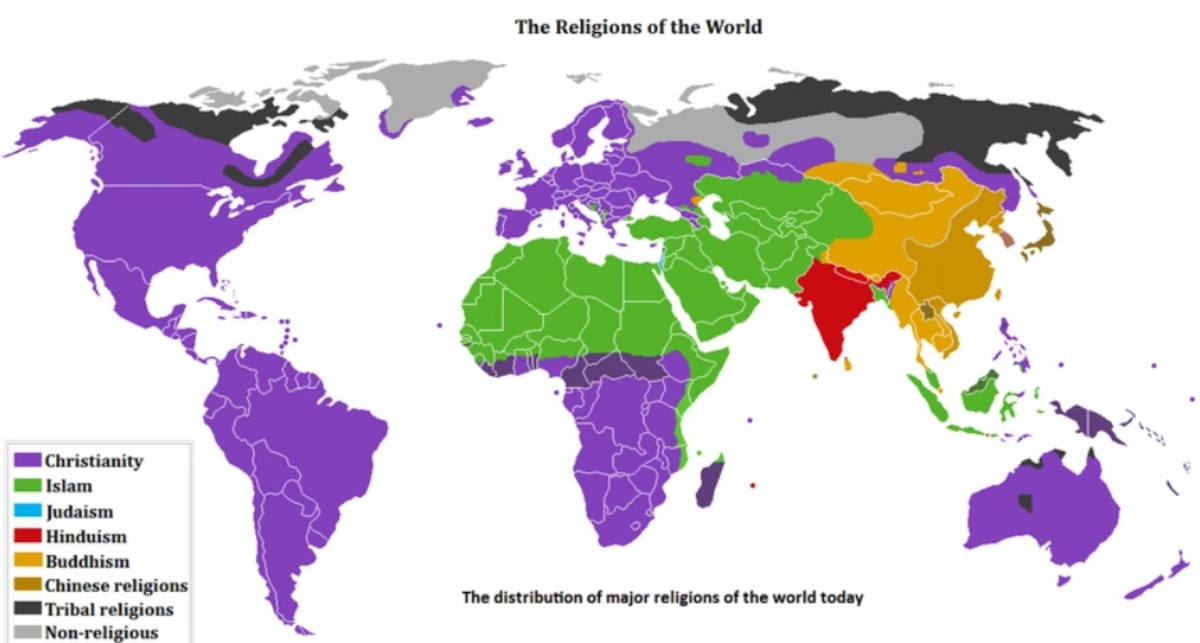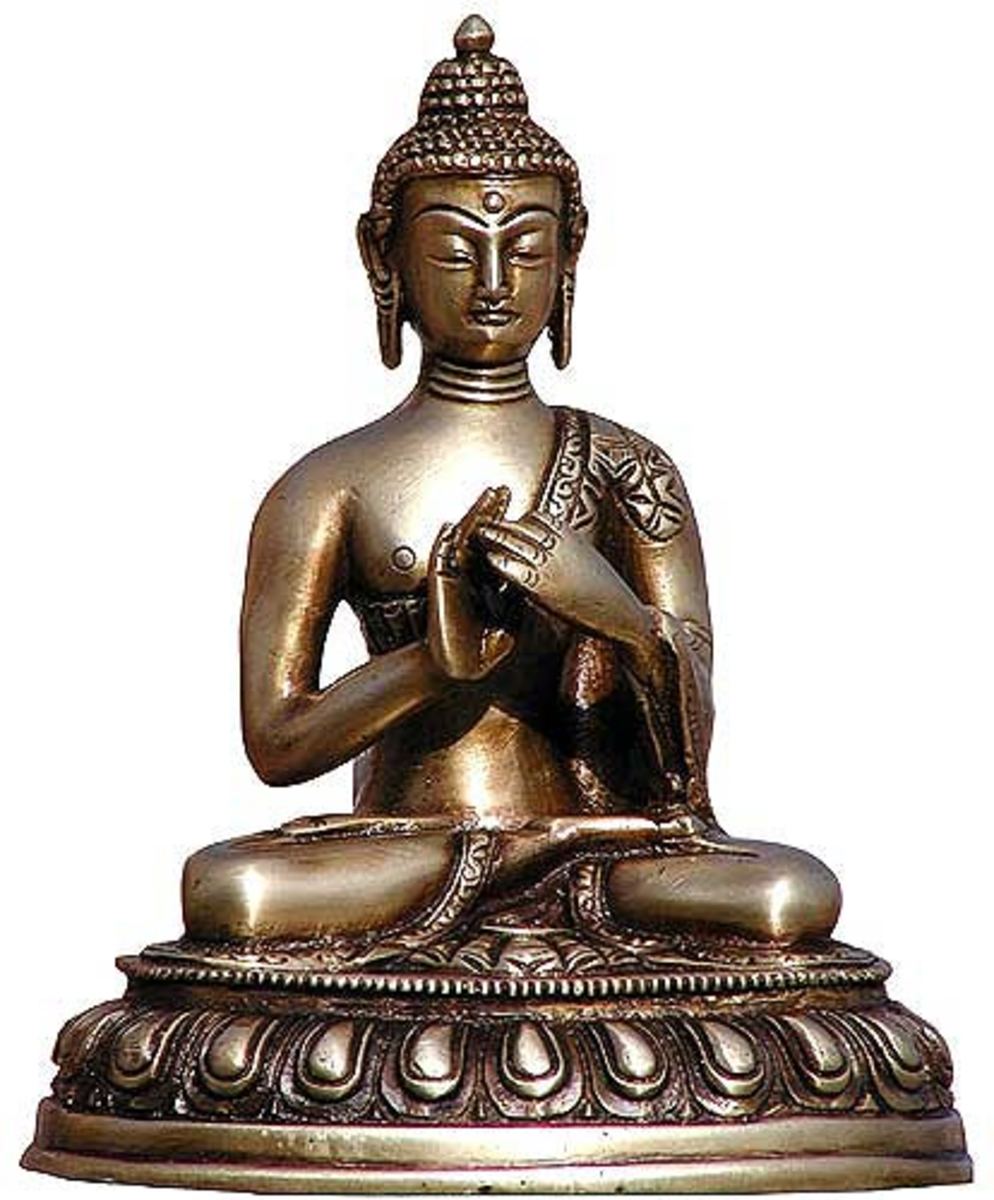A Study of the Thinking Process: The Case of Mrs. Pastwards
Let us examine a case of guilt, which is one of the most common afflictions in human relationships, in order to see how our thinking process controls our emotions and behaviors. It can even torture us. It is the understanding of the thought process that is important, not what we think about.
Since we are always busy grasping and clinging, we are easily caught up in craving, greed, envy, and attachment. This state of the mind pops up automatically because it is connected to our conditioned way of thinking, our habitual reactions and impulses. All these together with a collection of our past experiences form the SELF. This SELF-image constantly updates itself with new daily experiences which become additional memory or knowledge.
Thinking is a result of memory, past experience, and knowledge, and it projects itself into the future as well. If we observe our mind, we will see that we are either thinking about the past or thinking, planning, worrying about the future. On the other hand, awareness or mindfulness is a different aspect of the mind. It only exists in the present moment. It is not related to the past or future. It can free the mind from the bondage of the past and projection into the future. It is the unconditioned state of being, often referred to as the "original mind".

Bhante Kovida talked about a true life story of one of his students. The name is here changed to Mrs. Pastwards. This lady wrapped herself in guilt for not taking care of her mother who passed away sixteen years ago. During those sixteen years, she felt haunted and punished by the ghost of her late mother.
She could not sleep well and, though she was wealthy, she did not enjoy the sensual pleasures which her money was able to buy her. At times of illness, her worry intensified that she would be treated the same way by her children; that she would have the same tragic and unhappy death as her mother.
Her Buddhist teacher told her to live more in the present and less in the past. Her "I" or "me" notion was built up by sorrowful memories interwoven with fearful projections. Over the years she had developed a rigid pattern of thinking. It had become an automatic mechanical, repetitive process which had kept alive the memories associated with guilt.
Mrs. Pastwards began to realize that she had been living in the past and clinging to the memory of her mother. In her case, guilt was the fear of being considered a "bad daughter" by the rest of her family, the fear of public opinion and of what others said or thought about her.
The opinions or expectations of others are very often a very powerful force in shaping or SELF-image and in binding us to live up to them. For sixteen years she carried an image of herself as being this "bad daughter" and she had turned this self-image into a permanent and solidified entity.
Yesterday is gone. Tomorrow hasn't come.
Guilt, anxiety, hope, worry, insecurity, and fear are all connected. They are created by self-centered thinking and the strong desire to have, to become, to achieve or to get rid of. With awareness, we will see that thoughts, emotions, and memories are also not permanent. They come and go like clouds in the sky, like the stars we see when we rub our eyes.
The present is not a fixed and static state. The energy of focus or awareness keeps our mind in the present moment, whereas the energy of thinking takes us away from the present. The former is restful, united, spacious and immediate, while the latter is restless, scattered, restrictive and linear.
To free herself from her negative feelings, Mrs. Pastwards first had to forgive that young, immature person of more than sixteen years ago for not being patient with and considerate to her sick and helpless mother. The letting-go of the past and the diversion of energy to the present would set her free from her long-existing guilt.
With the gradual development of a free mind, Mrs. Pastwards' heart grew spacious as well. She practised transmitting loving-kindness not only to herself and her late mother but also to all other beings in this world. Loving-kindness or compassion is generated when we are free from the bondage of the SELF. It makes us aware that we are not the only people in the world with problems.
To be compassionate is to empathize with the suffering of others. Our loving-kindness is the sincere wish for ourselves and others to be happy, peaceful and free from problems and harm.

Settling The Mind: The Beauty of "Let it Be"
Once, the Buddha was travelling with a few of his disciples. While they were passing a lake, the Buddha told one of them, "I am thirsty. Do get me some water from the lake". The disciple walked up to the lake. At that moment, a bullock cart started crossing through the lake. As a result, the water became very muddy and turbid. The disciple thought, "How can I give this muddy water to the Buddha to drink?"
So he came back and told the Buddha, "The water in there is very muddy. I don't think it is fit to drink". After a while, the Buddha asked the same disciple to go back to the lake. The disciple went back and found that the water was still muddy. He returned and informed the Buddha about it. After some time, again the Buddha asked the same disciple to go back. This time, the disciple found the mud had settled down, and the water was clean and clear.
So he collected some water in a pot and brought it to the Buddha. The Buddha looked at the water, and then he looked up at the disciple and said, "See what you did to make the water clean. You let it be, and the mud settled down on its own - and you have clear water".
Our mind is like that too! When it is disturbed, just let it be. Give it a little time. It will settle down on its own. If we spend our energy turning to outside means to calm our mind, we will stir up more restlessness in ourselves.
Summary
Our minds are thinking all the time even when we are sleeping; that is why we have dreams. Our thoughts flow non-stop like a running river carrying mud and debris from the past. Our minds will be fixated and burred by these sediments and we shall go on thinking with such distortions. We tend to cling to old memories and experiences.
To free ourselves from the past and to stop ourselves from anticipating the future, we should learn to focus our minds on the present moment, because only the present moment exists. With a liberated mind, our heart can grow spacious and be accommodating. Once we stop looking through the "I" perspective, we shall be able to treat other people and things with compassion and equanimity.









